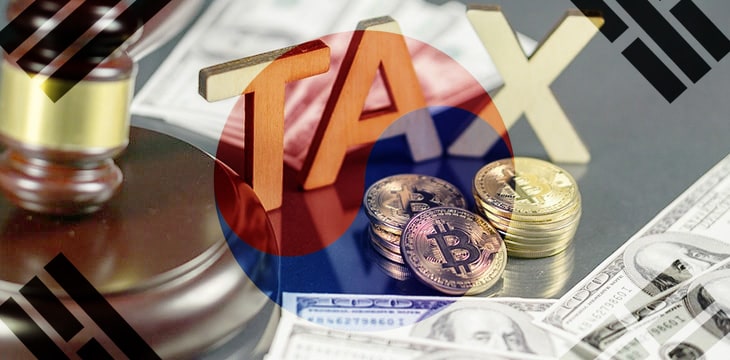|
Getting your Trinity Audio player ready...
|
South Korea could impose capital gains tax on digital currencies if a bill sails through its legislature. According to local reports, the country is seeking to impose a 20% tax on digital currencies.
South Korea has been working on digital currency taxation for several months now. In May, the Ministry of Economy and Finance proposed amendments to the tax bill that would see the government impose income tax on digital currencies. It also claimed to be debating the possibility of imposing capital gains tax as well.
According to a report from local outlet Newsway, the capital gains tax could become a reality soon. The outlet reported that the country’s parliament is deliberating on a private member’s bill that could introduce the tax.
The bill, if passed, will also change the classification of digital currencies from currencies to goods. While digital currencies can be used as ‘electronic certificates of economic value’, they also qualify as assets when they are used for sales purposes.
In a recent ruling, a South Korean court declared, “Until now, virtual assets have been recognized only as a function of currency and have not been subject to income tax, but recently, virtual assets are increasingly being traded as goods with property value.”
The court stated that there are several factors that must be considered before classifying digital currencies. These include “the recognition of intangible assets with property value, the necessity of taxation, and the recognition of the property value of virtual assets.”
This is the latest effort by the East Asian country to impose taxes on digital currencies. Early this year, local reports revealed that the country was considering classifying digital currency returns as “other income.” This classification would put it in the same category as lottery wins and other “infrequent and abnormal” income. By re-classifying it, the government would have been able to impose up to 20% in income tax.
While the legislators have favored a drastic approach, tax experts believe that a gradual process is the way to go. The experts from the Korea Tax Policy Association urged the government to start off with a low level trading tax. They believe this will enable a smooth transition for the digital currency industry.

 03-04-2026
03-04-2026 




